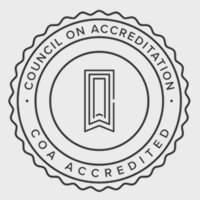 As we move into fall and the Thanksgiving season, often we are encouraged to adopt an “attitude of gratitude.” Between an ongoing pandemic, political discord, continuous racial tensions, hot weather, and the everyday difficulties of our ongoing lives, sometimes gratitude feels hard to access. So what is gratitude beyond tagging social media posts with #blessed and why should you care? And what good does gratitude do? Research suggests that practicing gratitude betters our physical health, mental wellbeing, and social relationships.
As we move into fall and the Thanksgiving season, often we are encouraged to adopt an “attitude of gratitude.” Between an ongoing pandemic, political discord, continuous racial tensions, hot weather, and the everyday difficulties of our ongoing lives, sometimes gratitude feels hard to access. So what is gratitude beyond tagging social media posts with #blessed and why should you care? And what good does gratitude do? Research suggests that practicing gratitude betters our physical health, mental wellbeing, and social relationships.
Gratitude is defined by researcher Robert Emmons, Ph.D., as an affirmation of goodness and the practice of figuring out where that goodness comes from. Gratitude is not discounting the complaints, challenges, and burdens of life. Instead, we are holistically saying, “Life is hard, AND there are parts of life that are good too.” As we consider where goodness comes from, we can look outside of ourselves to discover the ways that others help us to experience good things in our world. For example, I might recognize that work is pretty stressful right now, and when I stop to think about what has gone well recently, I am thankful for the plethora of individuals who have offered to help with various tasks and projects. The gift of having coworkers I can count on has been a reminder to me of how thankful I am to be on a team with them.
Regularly practicing thankfulness can be transformative. Gratitude allows us to be in the present and magnifies positive emotions. In a study by Dr. Emmons, groups of participants were asked to write a few sentences about either something that displeased them, they were thankful for, or felt neutral about every day ten weeks. At the end of the study, the group who wrote about gratitude was more optimistic than the others and felt better about their lives. Research also suggests that showing gratitude reduces the frequency and duration of depressive episodes and increases resilience. A regular practice of thankfulness facilitates better sleep, encourages people to contribute more at work, and builds strong relationships.
Life feels busy enough; how do we actually integrate practicing gratitude into our lives besides the classic gratitude journal or using #blessed? Remembering the bad and the hard times can help us feel grateful for the good things, however small, that are occurring now. In many spiritual traditions, using prayers or mantras of gratitude help connect us to thankful thoughts, feelings, and experiences. Being thankful with others adds to the joy and connection that come with thankfulness. Families may find it helpful to regularly name something each person is thankful for right before bed, on the car ride home from school, or at the dinner table. I’ve found it helpful to have reminders around me to be appreciative of the ways that blessings are around me. For a while, my work computer password was “Thankful.” (Don’t worry IT folks, it’s not my password now.) I have a sticky note on my computer with a reminder to think of the positive. Even when we don’t feel it, going through the motions of practicing gratitude, such as smiling or writing a letter of gratitude, can trigger emotions of thankfulness.
However you decide to practice gratitude this season, take advantage of the ways that simple moments of thankfulness can benefit our bodies, minds, and relationships.
Joella Gerber, LISW, RPT is a Clinic Therapist Supervisor and Therapist at Tanager Place, where she is honored to get to help kids, caregivers, teachers, and the community build resilience, integrate relational wellness, and find healing. As a Registered Play Therapist and Trust-Based Relational Intervention® Practitioner, Joella believes that relationships and connection are the key to wellness and finds hope in knowing that through intentional experience, support, and work, people can find solutions to the challenges in their lives. Joella is especially passionate about providing support and resources to kids and families who have experienced adoption, foster care, or other trauma. When not at work, you’ll probably find Joella with her nose in a book, on an outdoor adventure, or serving with her faith community.
References:
https://greatergood.berkeley.edu/article/item/why_gratitude_is_good
https://www.health.harvard.edu/healthbeat/giving-thanks-can-make-you-happier
Copyright (2021)


